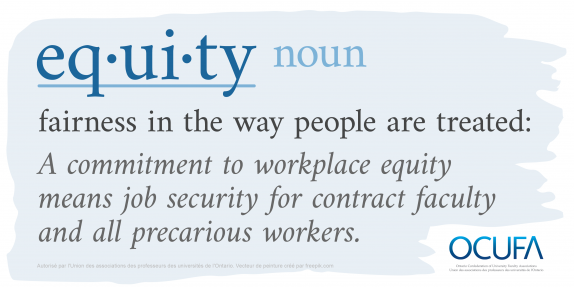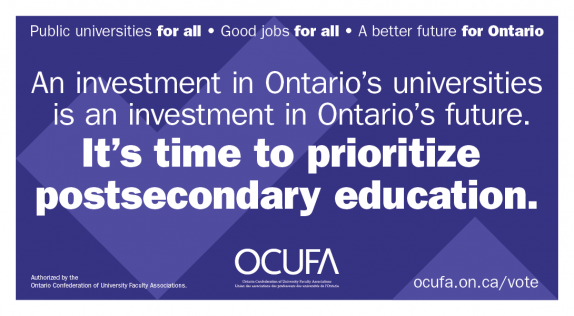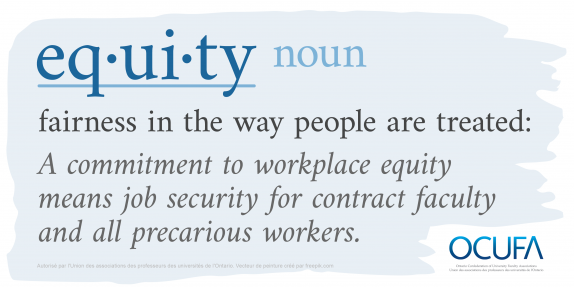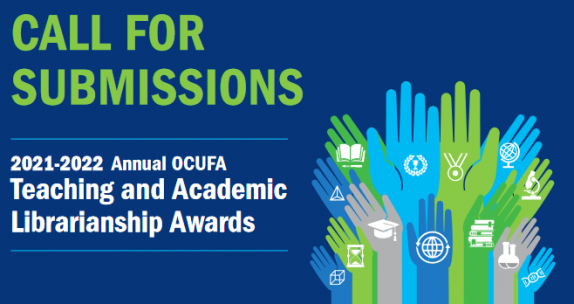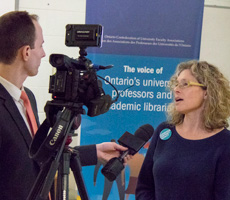There is more to Academic Matters than just the print issue. New articles are being added to the Academic Matters website every week. Here are some recent articles you might find interesting:
The long fight against sexual assault and harassment at universities
“With the return to university campuses this fall, there have been disturbing reports of both sexual assaults and sexist incidents. At Western University, for example, four students reported being sexually assaulted and there was mass student mobilization following social media reports of numerous sexual assaults…”
The pandemic exposed the vulnerability of international students in Canada
“When the COVID-19 pandemic began in March 2020, students in Canadian universities and colleges faced many challenges. Classes moved online, students were asked to leave campus residences and many students lost jobs or faced reduced work hours. While some domestic students could return home…”
Early-career professors want changes in how tenure is evaluated in wake of pandemic effects on productivity
“After two years of living through a pandemic, thoughts of returning to normal have shifted to focus on establishing a “new normal.” The COVID-19 pandemic yielded profound changes to research activities and operations at universities. These have had impacts on the career progression, productivity…”
Universities: The often overlooked player in determining healthy democracies
“We’ve been hearing recently about the possibility that the United States — assumed to be a prime example of democracy — is in real peril of collapse. Coming into 2022, we find ourselves in the midst of a worldwide democratic recession. Democracy is vulnerable and fragile…”
International student numbers hit record highs in Canada, UK and US as falls continue in Australia and NZ
“International students are heading to Canada, the UK and the US in record numbers despite the pandemic, new research by the Mitchell Institute at Victoria University shows. But Australia and New Zealand continue to experience a dramatic drop in new international students…”
Banning non-disclosure agreements isn’t enough to stop unethical workplace leader behaviour
“Just weeks after Prince Edward Island became the first province in Canada to pass a bill restricting the use of non-disclosure agreements (NDAs) on Nov. 17, some harms of NDAs have been in the news. NDAs are contracts in which parties agree not to…”
Female faculty of colour do extra diversity work for no extra reward – here’s how to fix that
“College faculty members are critical in helping American colleges become more diverse, inclusive and equitable. Professors and instructors not only teach and advise students, they also help institutions make inroads toward equity goals such as improving graduation rates for underrepresented students by connecting with and…”
Universities should no longer ask students for anonymous feedback on their teachers
“Student evaluations, in the form of anonymous online surveys, are ubiquitous in Australian universities. Most students in most courses are offered the opportunity to rate the “quality” of their teachers and the course they take. The original intention of student surveys was to help improve…”
Universities need to focus on students—not teach to targets—to help them succeed
“The Office for Students, England’s higher education regulator, has outlined new proposals to ensure university students reach “acceptable outcomes” from their studies. The proposals, released as consultation documents, include numerical targets. For full-time students, 80% of those studying for their first degree should…”
Why universities are starting to re-evaluate their academics’ travel
“As New Zealand starts lifting travel restrictions at the end of this month, academics may feel the need to catch up on missed opportunities to attend conferences. But flights account for about a third of the tertiary sector’s emissions and universities will need to…”
Remaking Australian universities: notes from the sidelines of catastrophe
“Can we grieve not for a person but for an institution? Should we be angry over possibilities destroyed, young talents denied a chance to flourish? Is there any point in lamenting greed, short-sightedness, the brutality of power? As I write this, in September 2021…”
2 out of 3 members of Australian university governing bodies have no professional expertise in the sector. There’s the making of a crisis
“To say Australian universities are in crisis is to state the obvious. A common narrative suggests the most immediate cause of the current crisis is “reduced international student revenue and income from investments, such as dividends” during the pandemic. Some correlation is undeniable. However, many…”





